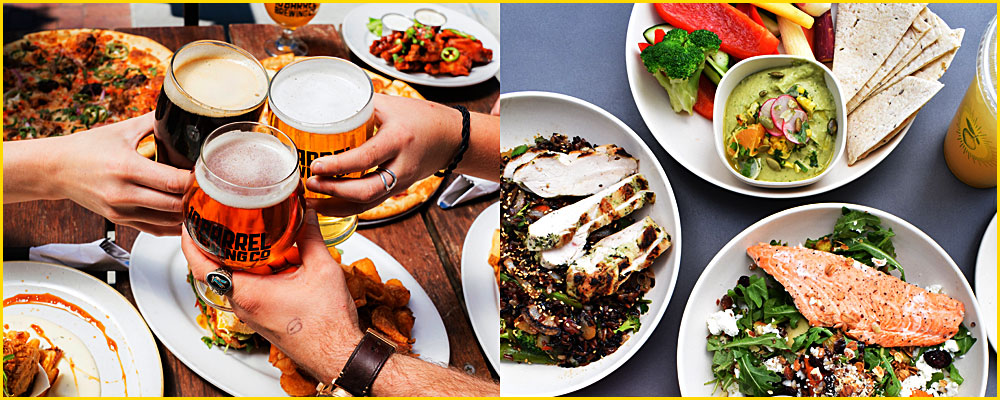
One of the most obvious truths about our bodies, that continues to be downplayed in modern medicine, is the power of eating food that is good for us. When you examine the plethora of choices in the modern marketplace, food becomes a matter of taste and palate, not fuel for thriveability. We develop our favorite foods as children, and often unconsciously start a reward relationship regarding those favorites. I feel everyone can relate to this, and you still likely have favorite foods.
Having favorites isn’t necessarily bad or wrong; however, it does set up a "dualistic" approach to food, i.e., reward and punishment versus what we eat for sustainability and balanced energy.
Think about it: weren’t there foods you did not want to eat as a child? Didn’t it feel like a punishment when you had to "eat your peas," or whatever it was? On the other hand, for special occasions like your birthday, you likely got "favorites." So we develop this reward-punishment approach to food, and we start to become ruled by our taste buds, not by intelligence!
As we move into adulthood, our culture reinforces this unhealthy and unsustainable approach to food with tons of advertising, and millions of dollars spent on developing that "flavor burst," which literally creates an addiction to that product. As I write this, obesity in American has become a pandemic, and we have become food addicts.
I was slammed head-first into this awareness early on in my recovery with Dr. Dale. I knew I had a toxic relationship with food, very much eating what I wanted, what tasted good, but then I found out that I had these food sensitivities that helped keep me addicted. Once I pulled the offending foods out of my life (peanuts, yeast, wheat, soy, cow dairy [except butter] and mushrooms) my approach to food started to change. I could actually FEEL what was working for my body. I had more energy, and started to mentally work with the cravings that still came up.
I found that discipline was a key, and that I needed more of it. I kept at it, and despite some "cheats" I got stronger and stronger mentally and emotionally. I learned that I had been using food as a substitute for love, particularly self-love. I embarked on the sacred mission of developing that character trait, as I saw its importance. I found that I could use other forms of self-soothing instead of eating sugar, as an example. And boy, did I love sugar!
Once I found conscious breath work, it become a lot easier for me to hold to my boundaries and not cave. I would like to point out that sometimes, other people would act offended and hurt if I didn’t eat something they were serving. I tried to explain my condition, and yet I still sensed their confusion and chaos. Later, I realized that I was inadvertently bringing up their unresolved food trauma! I even learned the correct phrase for this, "Nurturing trauma," from Leonard Orr, the grandfather of the Rebirthing movement in the U.S.
You see, we are all born into this world seeking nurturing. A few of us did have amazingly available mothers who nursed, held and loved us consistently from birth. But for the rest of us, we had the mothers who were stressed, overworking and under-nurtured themselves. This meant that their ability to bond with us and nurture us might be lessened. A situation as simple as you being in a growth spurt, and waking up hungry at the wrong time for Mom who has you on a schedule (can you believe that was a thing?!).And it simply wasn’t time to feed you. So you went hungry and this begins the trauma. This sets us up for addictions and mental health issues.
I maintain that trauma is the "gateway drug," and that the only permanent resolution lies in character development and brain training. I have proven this to myself, by overcoming PTSD (Post Traumatic Stress Syndrome) since the age of 4 months, when my mother had a psychotic break and tried to take me out. I do not share this to be sensational, rather to demonstrate that there are intelligent ways to overcome massive trauma. I did not even learn of this incident until I was in my 40’s, but I knew I had PTSD because it had been professionally diagnosed in my early 30’s.
All of this was underneath my relationship with food! It was my relationship with my mother, my relationship with reward-punishment, my relationship with my body, so much content to breathe through and use brain training for.
Yes, it took years. Yes, it has been completely worth it. I have a freedom with food I never imagined, and am inspired by preparing meals for myself and others. I can honestly say I am developing Food Intelligence!
That is part of why I want to share food with you, it is a source of love and joy for me, and I have earned the upside by mining through enough of the negative emotions that I get lots of energy though sharing it.